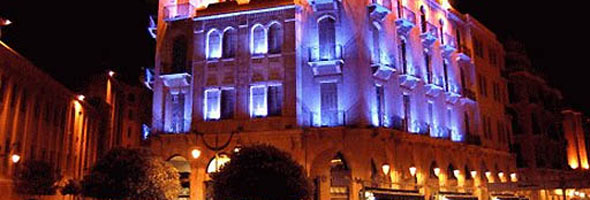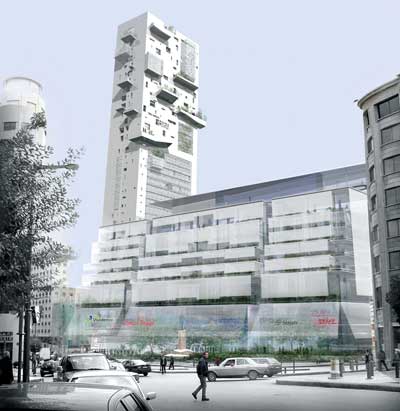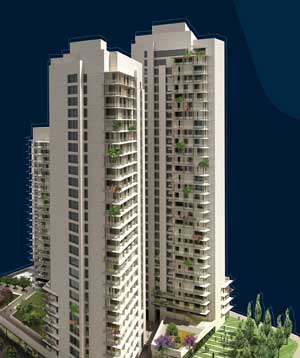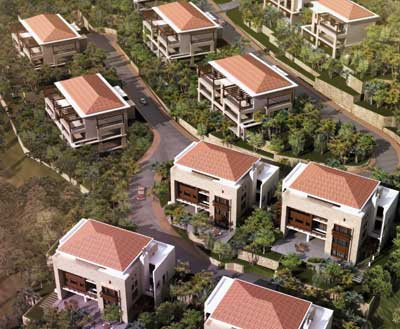Lebanon Real Estate: Analysis of the Lebanese Real Estate and Construction Sector
Real estate prices have been rising quickly since the end of the Israeli-Lebanon war in 2006. But the real estate market in Lebanon is unique. Although prices are skyrocketing as they are in many other countries, the real estate market has little speculation.
Real Estate and Construction sector
Exponential Growth
Real estate prices have been rising quickly since the end of the Israeli-Lebanon war in 2006. But the real estate market in Lebanon is unique. Although prices are skyrocketing as they are in many other countries, the real estate market has little speculation.
Roger Karam, CEO of Quality Investment Group explains. Prior to 2008, he says,

“we had stagnation of prices,” and “what we have seen in the last two years is catch-up on the stagnation. We have pretty much caught up with cities such as Amman. What we’re seeing is a correction in other cities.” 
Further, Karam goes on, Lebanon is not likely to see much speculation:
“We have not seen the level of speculation that we have seen in the Gulf. It is an end-user market. Supply in the country is being met by demand. You do not have huge towers built whereby the developer needs to see half of his tower up front to pay his costs. The financial structure of projects in Lebanon is much stricter in nature than what we have seen in the Gulf (region). The banks of Lebanon do not finance the purchase of a property, nor the first steps of construction. It might step in when it sees there are some sales.”
Victor Najjarian, Founder and General Manager of CARE Group agrees.
“Prices are going up,” but “speculation is scarce,
since there is a limited availability of land.
The market is an end-user one.”
Nevertheless, Najjarian sees great opportunities for investment in real estate and construction through his own company:
“CARE Group is the leading company in the real estate field in Lebanon, in terms of project development, investment portfolio, and sales volume achieved. Basically, we have a huge network in the Middle East. We bring in investors, secure the lands, develop and sell the projects, and move to other interesting projects.” In addition to “our portfolio of 35 mega-projects in downtown (Beirut) and its close suburbs, 12 new projects are being launched in 2020 and 2011.”
George Chehwane, Chairman of Plus Properties, sees the diaspora as fueling increased real estate activity: “ex-pats have transferred their money to Lebanese banks due to the strength and confidence in the banking sector. The proximity of Lebanon to the Gulf has led them to have homes in Lebanon as well, and this is very promising for the market.” As a result, Plus Properties is launching one new project outside Beirut for medium- and low-priced units. “Because there is a high demand for low and medium real estate units,” says Chehwane, “we are focusing on launching projects like this around Beirut.”
Rene Matta, General Manager of Matta et Associés, agrees that
“We need a lot of construction; more hotels, more complexes, residential buildings, restaurants, infrastructure, and the government has started bidding for such projects.”
Matta’s own company currently has fifty of the biggest projects in Lebanon. The biggest is the Grand Hyatt Hotel, which is downtown (Beirut). “We are executing two big towers downtown. We have a lot of high-end residential buildings in Ashrafiyeh. We’re bidding for the highest tower in Lebanon. There are a lot of projects coming.”
Challenges in the Real Estate Sector in Lebanon
One negative “fly in the ointment” is Lebanon’s scores on the Index of Economic Freedom awarded jointly by the Heritage Foundation and Wall Street Journal. Ten areas of economic freedom are evaluated: Business Freedom, Trade Freedom, Fiscal Freedom, Government Spending, Monetary Freedom, Investment Freedom, Financial Freedom, Property Rights, Freedom. from Corruption, and Labor Freedom.
Lebanon’s composite economic freedom score is 59.5, making its economy 89th out of 179 countries evaluated for the 2010 Index., and this score is 1.4 points higher than last year. Lebanon is ranked 9th out of 17 countries in the Middle East/North Africa region, and its overall score is about equal to the world average.
Actually, Lebanon scored very highly on several individual areas if freedom mentioned above, and its composite score would give it a much higher ranking both internationally and regionally, were it not for very low scores on two of the areas. These are the areas of property freedom and freedom from corruption. On both of these, Lebanon received a low 30, bringing down the composite score of 59.5 considerably.
The explanation given for the low score on property rights is:
“The judiciary is significantly influenced by the security services and the police. The government-appointed prosecuting magistrate exerts considerable influence over judges by, for example, recommending verdicts and sentences. Trials, particularly commercial cases, drag on for years. Although Lebanese law provides for some protection of intellectual property rights and the government continued to raid shops and warehouses that were storing or displaying pirated content in 2008, enforcement is generally weak.”

The comments accompanying the low score on freedom from corruption read:
“Corruption is perceived as widespread and growing.”
Lebanon ranks 102nd out of 179 countries in Transparency International’s Corruption Perceptions Index for 2008, down for the second year in a row. Corruption is more pervasive in government contracts (primarily in procurement and public works), taxation, and real estate registration than in private-sector deals. It is widely believed that investors routinely pay bribes to win government contracts, which are often awarded to companies close to powerful politicians.